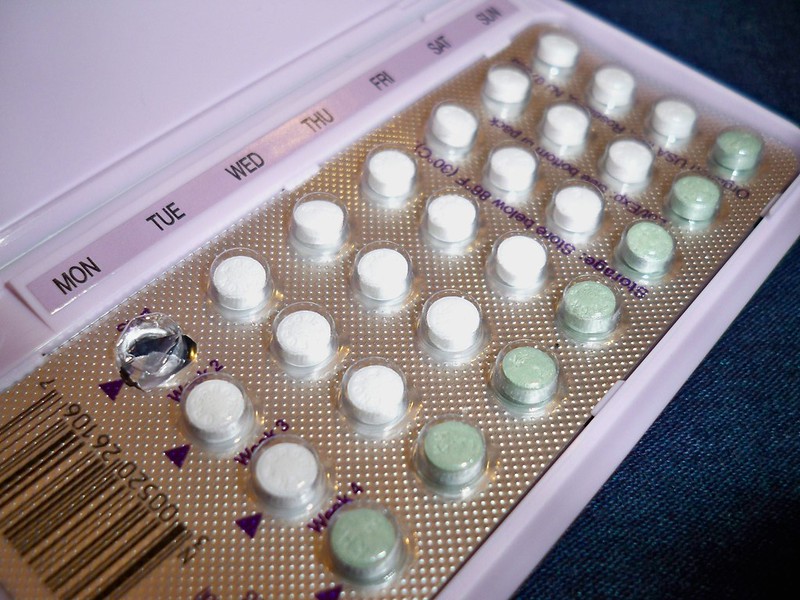Over-the-Counter Birth Control: Redefining Reproductive Healthcare In A Post-Roe World

Table of Contents
Increased Accessibility and Affordability of Birth Control
The accessibility and affordability of birth control are paramount to reproductive health. Making birth control available over-the-counter (OTC) would dramatically improve both.
Geographic Barriers
Over-the-counter birth control pills and other methods would eliminate significant geographical barriers to accessing contraception. Many rural areas and states with restrictive abortion laws already suffer from limited access to healthcare providers offering birth control prescriptions.
- Example: In some rural states, the nearest clinic offering reproductive healthcare might be hundreds of miles away, presenting insurmountable challenges for those without reliable transportation.
- Example: The closure of numerous reproductive healthcare clinics following Roe v. Wade's reversal has further exacerbated access issues in many communities.
- Offering over-the-counter birth control options would bypass these challenges, providing convenient access to affordable birth control options regardless of location.
Financial Barriers
The cost of prescription birth control, including doctor visits and insurance co-pays, poses a significant financial barrier for many individuals. Over-the-counter availability would drastically reduce this burden.
- Statistic: Studies show that prescription birth control can cost hundreds of dollars annually, placing an undue strain on low-income families.
- Impact: OTC birth control could make cost-effective contraception a reality for millions, promoting better reproductive health outcomes, especially within low-income communities.
- This increased accessibility aligns with the goal of accessible birth control for all, irrespective of socioeconomic status.
Convenience and Privacy
Over-the-counter access improves convenience and privacy. Obtaining birth control would no longer require appointments, potentially reducing stigma and allowing for increased control over personal reproductive health choices.
- Convenience: The ability to purchase birth control at a pharmacy or store offers greater flexibility and convenience, fitting seamlessly into busy schedules.
- Privacy: Avoiding potentially judgmental interactions with healthcare providers allows individuals to manage their reproductive health with greater discretion and privacy.
- This aspect of convenient birth control is especially critical for those who might feel uncomfortable discussing their reproductive health with others.
Potential Impacts on Unintended Pregnancy Rates
Increased access to birth control through OTC availability has the potential to significantly impact unintended pregnancy rates.
Reduced Rates of Unintended Pregnancy
Studies consistently demonstrate a strong correlation between increased access to contraception and reduced rates of unintended pregnancy. Expanding access through over-the-counter options could lead to a substantial decline in unintended pregnancies nationwide.
- Impact: Reducing unintended pregnancies would also lower rates of induced abortions, potentially mitigating some of the consequences of Roe v. Wade's reversal.
- Maternal Mortality: Decreasing unintended pregnancies would have a significant positive impact on maternal mortality rates, particularly in communities with limited access to healthcare.
- The impact on preventing unintended pregnancies through readily available and affordable over-the-counter birth control options is undeniable.
Addressing Health Disparities
Broader access to over-the-counter birth control could play a vital role in addressing existing health disparities in reproductive healthcare.
- Underserved Communities: Many underserved communities face significant barriers to accessing healthcare, including reliable transportation and affordable healthcare services.
- Racial and Ethnic Disparities: Racial and ethnic minorities often experience disproportionately higher rates of unintended pregnancies due to systemic inequities in healthcare access.
- OTC birth control offers the potential to level the playing field, ensuring equitable access to healthcare and reducing health disparities among marginalized groups. The impact on inclusive reproductive health would be substantial.
Concerns and Challenges of Over-the-Counter Birth Control
While the potential benefits of over-the-counter birth control are substantial, it's crucial to acknowledge potential concerns.
Misinformation and Self-Medication
The increased accessibility of over-the-counter birth control necessitates robust public health campaigns to counter misinformation and promote safe practices.
- Education is Key: Providing comprehensive, accurate information about various birth control methods, their efficacy, and potential side effects is crucial.
- Healthcare Provider Role: Healthcare providers must remain an essential part of the process, offering counseling and support to ensure patients make informed choices and use birth control responsibly.
- The risk of incorrect usage and potential health consequences underscores the importance of emphasizing safe birth control practices.
Regulatory Considerations and Safety
Regulatory bodies must ensure the safety and efficacy of OTC birth control options before widespread availability.
- FDA Approval: A rigorous FDA approval process is vital to ensure the safety and quality of OTC birth control, including appropriate labeling and patient education materials.
- Drug Interactions: Clear information on potential drug interactions is essential to avoid adverse health effects.
- Comprehensive safety measures and appropriate regulations surrounding birth control safety are crucial to safeguard public health.
Conclusion
Making birth control available over-the-counter offers a significant opportunity to redefine reproductive healthcare access in a post-Roe America. The potential benefits, including increased accessibility, affordability, convenience, and a reduction in unintended pregnancies, are substantial. While concerns about misinformation and self-medication must be addressed through robust public health initiatives, the potential positive impact on health equity and reproductive autonomy cannot be ignored. Learn more about the ongoing discussions and initiatives surrounding over-the-counter birth control and support policies that promote equitable access to reproductive healthcare. Safe and responsible use of over-the-counter birth control options is paramount. The future of reproductive healthcare in a post-Roe America hinges, in part, on the availability and accessibility of over-the-counter contraception and accessible reproductive healthcare options for all.

Featured Posts
-
 Exploring Block Mirror Innovative Solutions For Content Access Restrictions
May 16, 2025
Exploring Block Mirror Innovative Solutions For Content Access Restrictions
May 16, 2025 -
 Historic Sherman Tank Vs Modern Tesla A 98 Year Old Veterans Demonstration
May 16, 2025
Historic Sherman Tank Vs Modern Tesla A 98 Year Old Veterans Demonstration
May 16, 2025 -
 Ai In Football La Ligas Pioneering Role On The World Stage
May 16, 2025
Ai In Football La Ligas Pioneering Role On The World Stage
May 16, 2025 -
 The Warriors Need Jimmy Butler Not Another Kevin Durant
May 16, 2025
The Warriors Need Jimmy Butler Not Another Kevin Durant
May 16, 2025 -
 Ohio Police Custody Video Evidence And The I Dont Hear A Heartbeat Case
May 16, 2025
Ohio Police Custody Video Evidence And The I Dont Hear A Heartbeat Case
May 16, 2025
